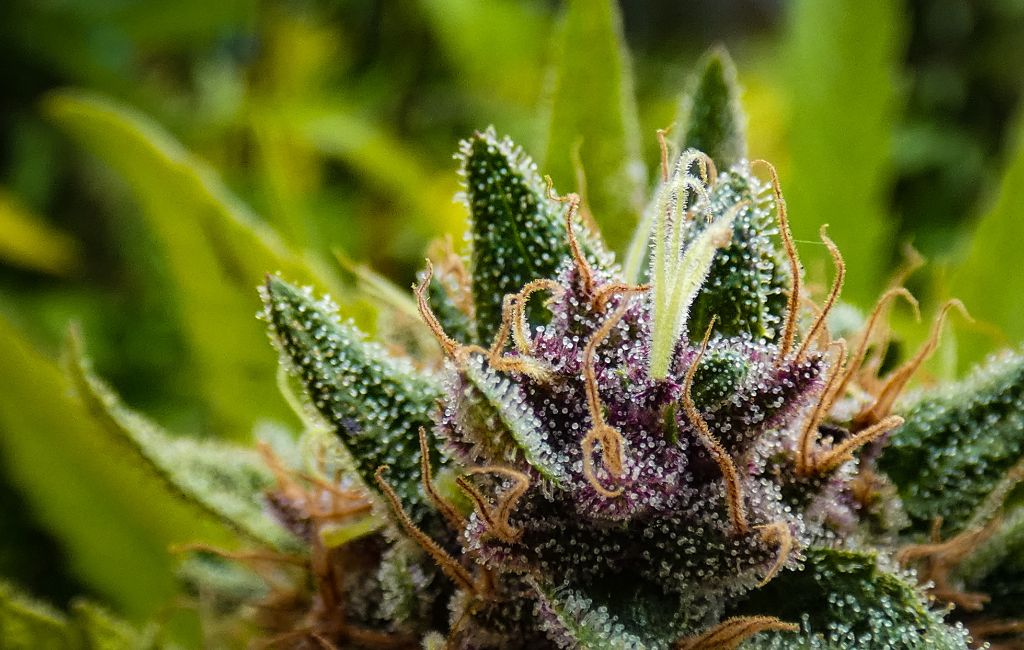Embrace Health with THCa Flower
In recent years, the conversation around cannabis has evolved significantly, with a growing interest in its various compounds and their potential health benefits. One such compound that has garnered attention is THCa, or tetrahydrocannabinolic acid. Unlike its more famous counterpart THC, THCa is non-psychoactive, meaning it doesn’t produce the “high” associated with cannabis. This article explores the potential health benefits of THCa flower and how it can be integrated into a wellness routine.
Understanding THCa: The Basics
THCa is a cannabinoid found in raw and live cannabis plants. It is the precursor to THC, the compound responsible for the psychoactive effects of cannabis. When cannabis is heated through smoking, vaping, or cooking, THCa is converted into THC through a process called decarboxylation. In its raw form, THCa does not produce any intoxicating effects, making it an appealing option for those seeking the therapeutic benefits of cannabis without the high.
Potential Health Benefits of THCa
Research into THCa is still in its early stages, but preliminary studies and anecdotal evidence suggest several potential health benefits:
- Anti-inflammatory Properties: THCa may help reduce inflammation, which is a common factor in many chronic diseases.
- Neuroprotective Effects: Some studies indicate that THCa could have neuroprotective properties, potentially benefiting conditions like Alzheimer’s and Parkinson’s disease.
- Anti-emetic Effects: THCa might help alleviate nausea and vomiting, making it a potential option for those undergoing chemotherapy or dealing with other conditions that cause these symptoms.
- Appetite Stimulation: Like THC, THCa may help stimulate appetite, which can be beneficial for individuals with conditions that cause appetite loss.
Incorporating THCa Flower into Your Routine
For those interested in exploring the benefits of THCa, there are several ways to incorporate it into a daily routine. Consuming raw cannabis is one of the most straightforward methods. This can be done by adding raw cannabis leaves or flowers to smoothies, salads, or juices. This method preserves the THCa content without converting it to THC.
Case Studies and Real-Life Examples
Several individuals have shared their experiences with THCa, highlighting its potential benefits. For instance, a patient with chronic pain reported a significant reduction in symptoms after incorporating THCa into their regimen. Another individual with a neurodegenerative condition noted improved cognitive function and reduced tremors.
While these examples are promising, it’s important to approach them with caution, as more research is needed to fully understand the effects of THCa.
Scientific Research and Statistics
Current research on THCa is limited but growing. A study published in the British Journal of Pharmacology found that THCa exhibited anti-inflammatory properties in animal models. Another study in the Journal of Neuroimmune Pharmacology suggested that THCa might have neuroprotective effects, although more research is needed to confirm these findings in humans.
Statistics on cannabis use indicate a growing interest in non-psychoactive cannabinoids. According to a report by the Brightfield Group, the market for cannabis products that do not produce a high, such as those containing THCa, is expected to grow significantly in the coming years.
Legal Considerations and Accessibility
The legal status of THCa varies by region. In some areas, it is considered legal due to its non-psychoactive nature, while in others, it falls under the same regulations as THC. It’s important for consumers to be aware of the laws in their area before purchasing or using THCa products.
Accessibility to THCa products is increasing as more dispensaries and online retailers offer raw cannabis products. Consumers should look for reputable sources that provide lab-tested products to ensure quality and safety.
Conclusion
THCa flower presents an intriguing option for those seeking the therapeutic benefits of cannabis without the psychoactive effects. While research is still in its early stages, the potential health benefits of THCa, such as anti-inflammatory and neuroprotective effects, are promising. As interest in non-psychoactive cannabinoids grows, so too does the availability of THCa products. Consumers should stay informed about the legal status and quality of these products to make the best choices for their health and wellness.
